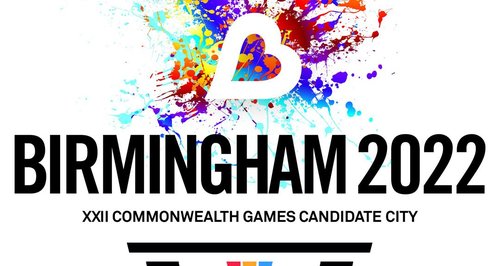Birmingham 2022 Commonwealth Games "Hotel Tax" Being Considered
25 July 2019, 09:33

The Government has said that Ministers are willing to consider a "hotel tax" in Birmingham to help fund the 2022 Commonwealth Games
Lord Ashton of Hyde said officials, including at the Treasury, "stand ready" to hear suggestions from Birmingham City Council.
His commitment came as Labour former minister Lord Hunt of Kings Heath mooted a "hotel tax" of £1-a-night per room.
Lord Hunt voiced concern over the "fragile" finances of the city council, adding it would be "very disappointing" if the authority has to take cash away from existing services to contribute towards the games.
Culture minister Lord Ashton said Birmingham and the West Midlands will benefit from £778 million of investment to stage the Commonwealth Games, with the city council and partners funding £184 million of the budget.
He added the council has committed to meet its obligations and said it has sufficient reserves to cover the cost.
Lord Ashton told peers: "We are in frequent dialogue with Birmingham City Council and to date no detailed case has been put forward to evidence the need for an additional power.
"But I do understand that Birmingham City Council is undertaking now detailed work and they've employed expert advice on this on various options for revenue raising to offset the cost of the games, including the use of existing powers or the introduction of a new tax - such as the hotel tax.
"So we and Her Majesty's Treasury await the conclusion of that analysis and we do stand ready to look at the details of any proposals put forward by the council."
Moving an amendment to the Birmingham Commonwealth Games Bill, Lord Hunt earlier said: "Hotel taxes are quite accepted in many parts of the world.
"As the Bishop of Birmingham said at (the Bill's) committee stage, a £1-a-night tax for a three-year period could be expected to bring in £4.5 million to £5 million a year."
Lord Hunt said the Commonwealth Games are a "heaven sent opportunity" to pilot the hotel tax concept to see how it works, noting: "Hopefully it'd raise resources towards the games, we'd see what impact it'd have on the hotel market and on the economy of the city as a whole.
"I can't see what is to lose by allowing the city council to be a pilot in those circumstances."
But Conservative former Treasury minister Baroness Neville-Rolfe said she did not support such a levy.
She explained: "This would be a new form of taxation, and new taxes should not be introduced or even mooted without great care or consideration of the financial administrative costs, and of any perverse effects.
"Equally important, the way in which such a tax can morph into a new piggy bank for the Chancellor or set an unwelcome precedent."
The amendment was later withdrawn following the assurances from the minister.
The Bill is aimed at enabling the delivery of the Birmingham Commonwealth Games in three years' time.
It completed report stage, which also saw the Government offer assurances over disability access, and will undergo further scrutiny at a later date.






